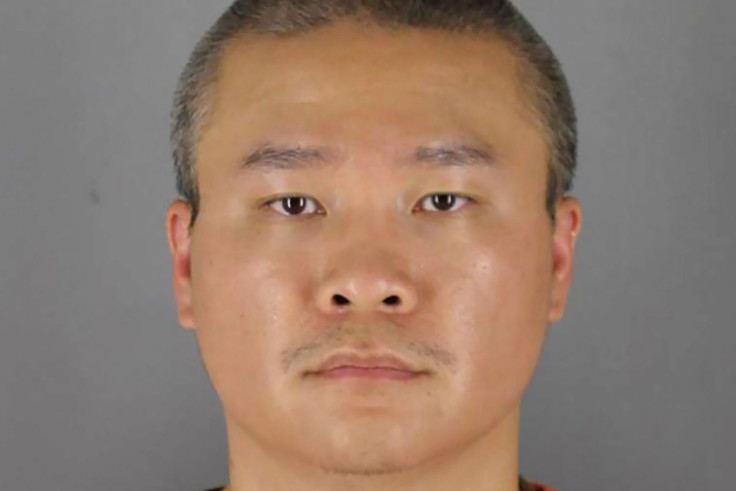Former Minneapolis Police Officer Recalls Knee-restraint Training At Trial For Floyd Arrest

Tou Thao, one of the three former Minneapolis police officers on trial charged with violating George Floyd's civil rights, told a jury officers were trained to use a knee near a person's neck as a means of restraint as he took the stand in his own defense on Tuesday.
Thao, 36, is on trial in the U.S. District Court in St. Paul alongside J. Alexander Kueng and Thomas Lane, accused of violating the 46-year-old Black man's right to receive medical care as he lay dying under the knee of their former colleague, Derek Chauvin, during the arrest on May 25, 2020.
Cellphone video of the arrest led to protests against racism and police brutality in cities around the world. Prosecutors have argued that the officers at the scene had a duty to intervene to prevent Floyd's death.
During questions by his lawyer Robert Paule, Thao recalled how a sometimes violent upbringing in a refugee household inspired him to become a police officer.
He also described how normal it was during training sessions to see an officer on top of a person being arrested while prone on the ground, using a knee near the neck to keep them pinned down. Jurors were shown photographs of Thao and his classmates using such restraints in what Paule characterized as military-style training sessions, which involved officers marching in formation and learning call-and-response "cadence" chants."
"Were you ever instructed that using knees was improper technique?" Paule asked his client.
"No," Thao replied.
A 'STRICT' UPBRINGING
Thao said he was first inspired to become a police officer when, as a child, he helped Minneapolis police officers arrest his abusive father.
"I think they were the two most peaceful days of my childhood," Thao testified, on the verge of tears as he described the immediate aftermath of the arrest. His testimony marks the first extensive comment on Floyd's murder by any of the four officers involved in the arrest.
He told the jury his parents fled to the United States from Laos, refugees belonging to the Hmong ethnic group. He was born in St. Paul, the city neighboring Minneapolis, the third of seven siblings whose parents could afford to feed them only one meal a day. Thao said he worked part-time at a McDonald's restaurant while in high school to support his family.
He said his father was strict, and recalled an occasion when he threatened to beat Thao with an electrical extension cord. Thao's mother tried to intervene, whereupon Thao's father grabbed a handgun from his bedroom and held it to their heads.
Mother and son fled to Thao's aunt's house nearby and called the police, and Thao returned with officers to the house to open the front door so they could arrest his father, Thao testified.
Thao, who can expect to be cross-examined later by prosecutors, can be seen on videos stood near Floyd while Chauvin kneels on the handcuffed Floyd's neck for more than nine minutes in an arrest outside a grocery store where Floyd was accused of using a fake $20 bill.
Thao, who had served about eight years in the Minneapolis Police Department, was focused on keeping horrified onlookers on the sidewalk as they screamed at officers to get off Floyd and check his pulse.
According to court filings based on police records, Thao was cited at least seven times while being trained in the field over several months in 2012 for shirking his duties, sometimes pretending not to see violations of the law in order to minimize his workload.
His lawyer has said that Thao did not breach Floyd's rights in part because he suggested the officers use a restraint device known as a hobble on Floyd, which would have entailed rolling him on his side, making it easier for him to breathe.
Chauvin, who is white, was found guilty in a separate state trial last year of murdering Floyd. He did not testify. He was also charged by federal officers of violating Floyd's civil rights, and changed his plea to guilty in December.
The two other officers, Lane and Kueng, have also said they plan to testify in their own defense. Thao, Lane and Kueng also face a separate state trial in June on charges they aided and abetted Floyd's murder.
© Copyright Thomson Reuters {{Year}}. All rights reserved.





















